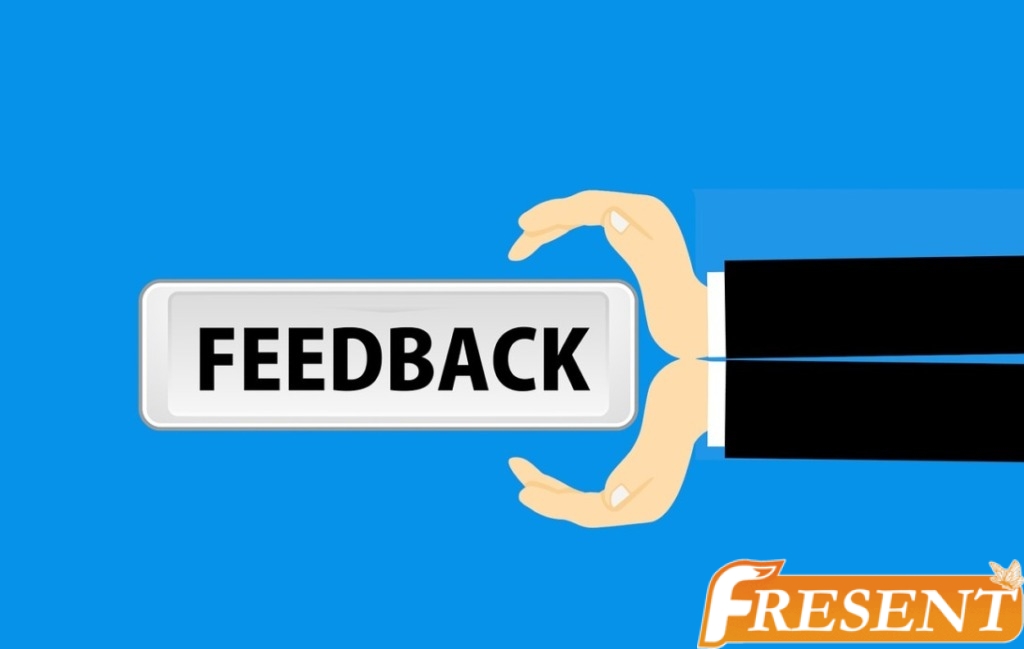Are you struggling to convert website visitors into paying customers for your SaaS product? Do you find that potential customers are hesitant to take the plunge and commit to your service? Enter social proof, a powerful tool that leverages the experiences of others to boost confidence in your product and increase conversions.
Social proof is all about showing potential customers that other people have successfully used and benefited from your product. It’s about providing evidence that your SaaS offering is not only effective but also trustworthy. In this article, we’ll explore why social proof matters in SaaS, how testimonials and case studies can be leveraged for maximum impact, common mistakes to avoid when using social proof, ethical considerations, future trends in this area, and ultimately how you can implement it effectively for increased success.
Introduction to Social Proof in SaaS
Let’s dive into the fascinating world of social proof in SaaS and how it can transform the way potential customers perceive your brand. Social proof is a powerful tool that helps build trust and credibility with your target audience. By showcasing real-life examples of satisfied customers, you can effectively demonstrate that your product or service is trustworthy, reliable, and valuable.
Examples of social proof in non-SaaS industries include customer reviews on Amazon or Yelp, celebrity endorsements for beauty products, and testimonials from satisfied patients for healthcare services. In each case, these forms of social proof help to reinforce the perceived value and quality of the product or service being offered.
Psychological factors also play a crucial role in influencing social proof perception. People tend to follow the behaviors and actions of those they perceive as similar to themselves or as successful individuals. This is why influencer marketing has become such a popular strategy for many companies looking to leverage social proof within their marketing efforts.
With this understanding of what social proof is and how it works in other industries, let’s explore how SaaS companies can use this powerful tool to their advantage.

What is Social Proof?
Imagine you’re at a crowded restaurant, trying to decide what to order. Suddenly, the waiter brings out a steaming plate of food and places it in front of your neighbor. As they take their first bite, their eyes widen with delight and they let out an audible ‘mmm’. Without even realizing it, you begin to feel more confident in your decision to order the same dish. This is the essence of social proof – when we see others having positive experiences, we are more likely to follow suit.
Social proof is defined as the phenomenon where people assume the actions of others in an attempt to reflect correct behavior for a given situation. It’s all about leveraging other people’s experiences and opinions to influence our own decision-making process. In today’s digital age, social proof has become increasingly important for businesses looking to attract new customers and retain existing ones.
Examples of social proof include customer reviews on e-commerce websites like Amazon or Yelp, influencer endorsements on Instagram or YouTube, user-generated content on social media platforms like Twitter or Facebook, and case studies that showcase successful outcomes for businesses similar to yours. By utilizing social proof effectively in your marketing strategy, you can build trust with potential customers and differentiate yourself from competitors who may not be doing so. Understanding the importance of social proof in SaaS will help you make informed decisions about how best to incorporate it into your overall business strategy moving forward.
Understanding the Importance of Social Proof in SaaS
You can boost your SaaS business by showcasing the positive experiences of others through customer reviews, influencer endorsements, and user-generated content on social media platforms. Building credibility and customer trust is essential in the crowded marketplace of SaaS products. When potential customers see that others have had success with your product or service, they are more likely to trust your brand and take action.
Social proof is an effective way to build trust because it provides evidence that your product or service delivers results. By displaying positive testimonials and case studies on your website or through social media channels, you can demonstrate how your product has helped others overcome challenges similar to those faced by potential customers. This approach allows you to focus on the needs and pain points of your target audience while providing tangible evidence of what sets you apart from competitors.
Data analytics play a critical role in measuring the impact of social proof marketing efforts. Analyzing engagement metrics such as click-through rates, conversions, and bounce rates can help you determine which types of social proof resonate most with your audience. By leveraging this information, you can refine your messaging strategy over time and continue building credibility with potential customers. Understanding the importance of social proof enables businesses to establish a foundation for long-term growth through increased customer loyalty and repeat business.
As we move into discussing the role of testimonials in social proof, it’s important to note that these types of endorsements are one of the most powerful forms of social proof available to businesses today.

The Role of Testimonials in Social Proof
Testimonials can be a game-changer for businesses, with research showing that 92% of consumers read online reviews before making a purchase decision. This is where the power of storytelling in testimonials comes into play. People want to hear about real experiences and how your product or service has helped others overcome their pain points. When crafting testimonials, it’s important to focus on the customer’s needs and highlight how your product solved their specific problem.
Building credibility through customer feedback is vital in establishing trust with potential customers. By showcasing positive testimonials, you can create a sense of reliability that will help convert leads into paying customers. But it’s not just about displaying glowing reviews – you need to back up your claims with data and analytics to measure success. Providing statistics or figures that show tangible results after using your product will add even more weight to your customer feedback.
Next up, we’ll explore the role of case studies in social proof. While testimonials are powerful tools for building credibility, case studies take things one step further by providing detailed accounts of how your product or service helped customers achieve their goals. By diving deeper into specific use cases, you can provide valuable insights into how your offering can benefit potential clients facing similar challenges.
The Role of Case Studies in Social Proof
Get a closer look at how our product or service has helped real customers overcome their challenges by exploring detailed case studies. Using data driven case studies for social proof is an effective way to showcase the success of your solution in solving customer pain points. These case studies allow potential customers to see exactly how your product or service has been used in real-life situations and the results it has delivered.
Measuring the impact of social proof on user acquisition is crucial for understanding its effectiveness. By analyzing metrics such as conversion rates, engagement levels, and overall ROI, you can determine how well your case studies are resonating with potential customers. The more data you can gather, the better you can refine and optimize your social proof strategy.
Incorporating case studies into your social proof strategy provides valuable insights into how your solution solves customer pain points. By using data-driven metrics to measure their success, you can ensure that they effectively communicate the value of your product or service to potential customers. In the next section, we’ll explore another powerful tool for leveraging social proof: influencers and thought leaders.
Leveraging Influencers and Thought Leaders for Social Proof
When it comes to building credibility for your brand, one effective approach is partnering with influencers and thought leaders who can share their experiences and insights about your product or service. Influencer partnerships allow you to tap into the reach and influence of individuals who have established themselves as experts in your industry. By collaborating with them, you can leverage their authority and reputation to increase awareness of your brand and build trust with potential customers.
Testimonial outreach is a key component of influencer partnerships. By reaching out to satisfied customers who also happen to be influencers or thought leaders, you can gather valuable feedback on how they use your product or service, what pain points it addresses, and any other benefits they’ve experienced. These testimonials are incredibly powerful because they provide social proof that your product or service works as advertised.
To measure the success of influencer partnerships, it’s important to track metrics such as engagement rates, click-through rates, conversions, and revenue generated from these activities. This data will help you determine which influencers are most effective at driving results for your business and which types of content resonate best with your target audience. Armed with this information, you can refine your influencer partnership strategy over time to optimize results.
As you explore ways to leverage social proof for your SaaS business, keep in mind that using social media to amplify social proof is another critical component of this process. Through platforms such as Twitter, LinkedIn, Instagram and Facebook Business Pages, businesses can create a steady stream of positive customer reviews that will enhance their online image while influencing consumers’ purchase decisions on an ongoing basis.

Using Social Media to Amplify Social Proof
You can easily boost your brand’s credibility and attract more customers by using social media to showcase real-life experiences and stories from satisfied users. Social media amplification is a powerful tool that can help you reach a wider audience and leverage influencers to strengthen your brand’s reputation. By partnering with thought leaders in your industry, you can create content that resonates with your target audience and reinforces the value of your product or service.
Influencer partnerships are particularly effective because they allow you to tap into an existing community of followers who trust and respect the influencer’s opinion. This gives you access to a highly engaged audience that is more likely to convert into paying customers. By working closely with influencers, you can create content that aligns with their values and interests, while still promoting the unique benefits of your offering.
To measure success, it’s important to track key metrics like engagement rates, click-throughs, and conversions. By analyzing this data, you can refine your social media strategy over time and ensure that you’re making the most of every opportunity. With the right approach, social media amplification can be a game-changer for SaaS companies looking to build their brand and connect with potential customers.
As you begin crafting a social proof strategy for your SaaS business, keep in mind the power of social media amplification and influencer partnerships. By leveraging these tools effectively, you can showcase real-life experiences from satisfied users while building credibility in your industry. In the next section, we’ll explore some specific tactics for crafting a successful social proof strategy that will help you stand out from competitors and drive growth for years to come.
Crafting a Social Proof Strategy
Crafting a social proof strategy can increase website conversions by up to 34%, according to a study by BrightLocal. To create an effective strategy, you need to focus on two key areas: social proof metrics and target audience analysis.
For social proof metrics, consider tracking the number of testimonials or case studies on your website, as well as the click-through rates and engagement levels they receive. Additionally, monitor your conversion rates before and after implementing social proof elements to see if there is a noticeable improvement.
When it comes to target audience analysis, think about who your ideal customer is and what pain points they may have. Use this information to tailor your messaging in testimonials and case studies to resonate with potential customers. For example, if you are targeting small business owners, highlight how your product helped another small business owner streamline their operations and save time.
Crafting an effective social proof strategy requires careful consideration of both data and audience needs. By focusing on these key areas, you can increase website conversions and drive more sales for your SaaS product. In the next section, we will explore real-world examples of effective social proof in SaaS without delay.
Real-World Examples of Effective Social Proof in SaaS
Let’s check out some real-life examples of how SaaS companies are effectively using social proof to boost their conversions. One great example is FreshBooks, a cloud-based accounting software for small business owners. They prominently feature customer testimonials on their website, showcasing the success stories of businesses that have used their product to streamline their financial management. These testimonials not only validate the effectiveness of FreshBooks but also speak directly to the pain points of potential customers who may be struggling with managing their finances.
Another company that uses social proof effectively is HubSpot, a marketing and sales platform for businesses. HubSpot features case studies on its website, highlighting specific companies that have achieved success using its platform. By providing detailed data and analytics on each case study, HubSpot demonstrates the impact it can have on a business’s bottom line. This type of social proof not only helps to build trust with potential customers but also serves as a way to educate them about how they can benefit from using the product.
The impact of social proof on customer retention cannot be overstated. Dropbox is an excellent example of this in action. The cloud storage company has a referral program that incentivizes existing users to refer new users by offering both parties free storage space. This program has been incredibly successful in retaining customers because it encourages them to become advocates for Dropbox and share their positive experiences with others. As a result, Dropbox has built an army of loyal users who continue to use and promote its product long after signing up initially.
By showcasing real-world examples like these, we can see firsthand how effective social proof can be in boosting conversions and retaining customers. But building trust with potential customers goes beyond just featuring testimonials or case studies – it requires a strategic approach that addresses specific pain points and provides clear solutions. In the next section, we’ll explore some tips for doing just that.
Tips for Building Trust with Potential Customers
To establish credibility and inspire confidence in potential customers, it’s important to present a solution that effectively addresses their pain points and demonstrates clear value. Building credibility starts by identifying the customer’s needs and using data-driven solutions to meet those needs. This can be achieved through showcasing success stories of other clients who have benefited from your SaaS product.
One effective way to build trust is by creating case studies that highlight the results of your product or service. These case studies should include data on how your solution helped solve a problem for a specific client or industry, as well as testimonials from satisfied customers. By providing social proof in the form of real-world examples, you can demonstrate the value of your product and increase trust with potential customers.
Another way to showcase success stories is through video testimonials or reviews from happy customers. Video content can be more engaging than written content, making it easier for potential customers to connect with real people who have used and benefited from your product. By incorporating these types of social proof into your marketing strategy, you can build credibility and earn trust with potential customers before they even try out your SaaS product.
As you begin building credibility with potential customers, it’s important to understand the psychology behind social proof. People are more likely to trust a brand when they see others endorsing it or benefiting from its products or services. In the next section, we’ll dive deeper into this topic and explore how leveraging testimonials and case studies can help establish trust and drive conversions for your SaaS business.
The Psychology of Social Proof
Understanding how people are influenced by the actions and opinions of others is crucial in building trust with potential customers and increasing conversions for your SaaS business. This concept, known as social proof, plays a significant role in consumer behavior and marketing tactics. The psychology of social proof suggests that individuals are more likely to make decisions based on the experiences of others rather than their own.
As a SaaS business owner, you can leverage social proof through customer testimonials, case studies, and reviews. The power of these forms of social proof lies in the fact that they offer tangible evidence of your product’s effectiveness. When potential customers see real-life examples of how your SaaS has helped others overcome similar challenges or achieve specific goals, they’re more likely to trust that it will work for them too.
By incorporating social proof into your marketing strategy, you can tap into the psychological phenomenon behind consumer behavior to drive conversions. However, it’s essential to remember that not all types of social proof are created equal. In the next section about common mistakes to avoid when using social proof, we’ll discuss how to best utilize this powerful tool for maximum impact on your SaaS business growth.
Common Mistakes to Avoid When Using Social Proof
Now that we know the psychology behind social proof, it’s time to dive into implementation. However, it’s important to note that not all social proof is created equal. There are common mistakes you should avoid when using social proof in your SaaS marketing strategy.
Firstly, don’t rely solely on generic testimonials. They may be positive, but they lack depth and specificity. Instead, use case studies that showcase how your product solved a specific pain point for a customer. This type of social proof is more relatable and believable.
Another mistake to avoid is overusing celebrity endorsements or influencer partnerships that aren’t relevant to your target audience or industry. While these can be effective in some cases, authenticity and relevance are crucial in building credibility through social proof.
To maximize impact and avoid pitfalls in social proof implementation, consider the following tips:
- Use case studies instead of generic testimonials.
- Make sure your social proof is relevant and authentic.
- Don’t rely too heavily on celebrity endorsements or influencers.
- Showcase real data and analytics to back up claims.
- Test different types of social proof to see what resonates best with your audience.
By avoiding these common mistakes and building credibility through authenticity, you’ll be on your way to effectively leveraging the power of social proof in SaaS marketing. But before you jump right in, it’s important to also consider ethical considerations for using social proof in order to maintain trust with your customers.
Ethical Considerations for Using Social Proof
It’s crucial to keep ethical considerations in mind when incorporating social proof into your marketing strategy. While testimonials and case studies can be powerful tools for building trust with potential customers, it’s important to ensure that the information you’re presenting is accurate and representative of your product or service. Misleading or exaggerated claims can have a negative impact on consumers, leading to distrust and ultimately damaging your brand reputation.
One way to ensure that you’re using social proof ethically is by being transparent about how you collect and use customer feedback. Make sure that any testimonials or case studies are based on real experiences from actual customers, rather than fabricated stories or cherry-picked quotes. Additionally, consider offering incentives for customers who provide feedback, such as discounts or free trials, but make sure these incentives don’t influence the content of their reviews.
Ultimately, the impact of social proof on consumers depends on how it’s presented and used. By prioritizing transparency and accuracy in your marketing efforts, you can build trust with potential customers while avoiding any ethical concerns. As you continue to incorporate social proof into your strategy, be sure to track its effectiveness through data and analytics so that you can continually refine your approach.
Looking ahead, future trends in social proof for SaaS will likely focus on leveraging new technologies like artificial intelligence and machine learning to better understand customer needs and preferences. By analyzing large amounts of data from various sources (such as social media), companies will be able to identify patterns in customer behavior and tailor their messaging accordingly. This personalized approach will not only improve the effectiveness of social proof but also help companies build stronger relationships with their customers over time.
Future Trends in Social Proof for SaaS
Get ready for a game-changing shift in marketing as artificial intelligence and machine learning take center stage, allowing companies to cater to customer needs like never before. Social proof automation is at the forefront of this revolution, enabling businesses to leverage testimonials and case studies more effectively than ever. The impact of AI on social proof in SaaS will be significant, providing new opportunities for marketers to connect with customers through personalized content and targeted messaging.
To evoke emotion in the audience, here are five trends we can expect in the near future:
- Increased personalization: AI-powered social proof will allow companies to tailor their messaging based on individual user behavior.
- Enhanced credibility: As people become more skeptical of traditional advertising methods, social proof becomes increasingly vital as a way to build trust with potential customers.
- Greater accessibility: Automation will make it easier than ever for SaaS companies of all sizes to implement effective social proof strategies.
- More detailed analytics: With AI comes increased data collection capabilities, allowing businesses to measure the ROI of their social proof efforts more accurately.
- Improved decision-making: By leveraging advanced algorithms and predictive analytics models, companies can make better-informed decisions about which types of social proof are most effective.
As these trends continue to evolve, it’s clear that the future of social proof in SaaS is bright. By embracing these changes and focusing on customer needs and pain points, businesses can stay ahead of the curve and drive long-term success through data-driven marketing strategies. So what are you waiting for? Start exploring how AI-powered social proof can benefit your business today!
Conclusion and Call to Action
You can take advantage of the emerging trends in AI and machine learning to enhance your marketing strategies and connect with customers on a more personal level. With the help of these technologies, you can create personalized experiences for each customer based on their preferences, behavior, and needs. This will not only improve customer satisfaction but also increase brand loyalty.
To ensure the success of your social proof strategy, measurement is crucial. You need to track key metrics such as engagement rates, conversion rates, and customer satisfaction scores to determine if your efforts are effective. Incorporating feedback from customers is also essential as it allows you to understand their needs and pain points better. By leveraging this information, you can continuously improve your social proof strategy and provide a seamless customer experience.
Incorporating social proof into your SaaS marketing strategy can have a significant impact on the growth of your business. However, it’s important to remember that success cannot be achieved overnight. It requires continuous effort and dedication to providing value to your customers through authentic testimonials and case studies. By focusing on measurement and incorporating feedback from customers, you can ensure that your social proof strategy remains effective in driving conversions and building trust with potential customers.

Conclusion
Congratulations! You now understand the power of social proof in SaaS and how it can benefit your business. By leveraging testimonials and case studies, you can build trust with potential customers and increase conversions.
Did you know that 92% of consumers read online reviews before making a purchase decision? That’s why it’s essential to have positive testimonials and case studies on your website. These pieces of social proof demonstrate your product’s effectiveness and reliability, which can encourage hesitant buyers to take the leap.
To measure the success of your social proof strategy, track metrics such as conversion rates, click-through rates, and engagement levels. Use this data to refine your approach continually and improve customer satisfaction. Remember to always act ethically when using social proof by obtaining consent from clients before sharing their stories.
In conclusion, incorporating social proof into your SaaS marketing strategy is vital for building trust with potential customers. By showcasing testimonials and case studies that demonstrate your product’s value, you’ll be able to increase conversions and drive growth for your business. Start implementing these tactics today to see measurable results tomorrow!

